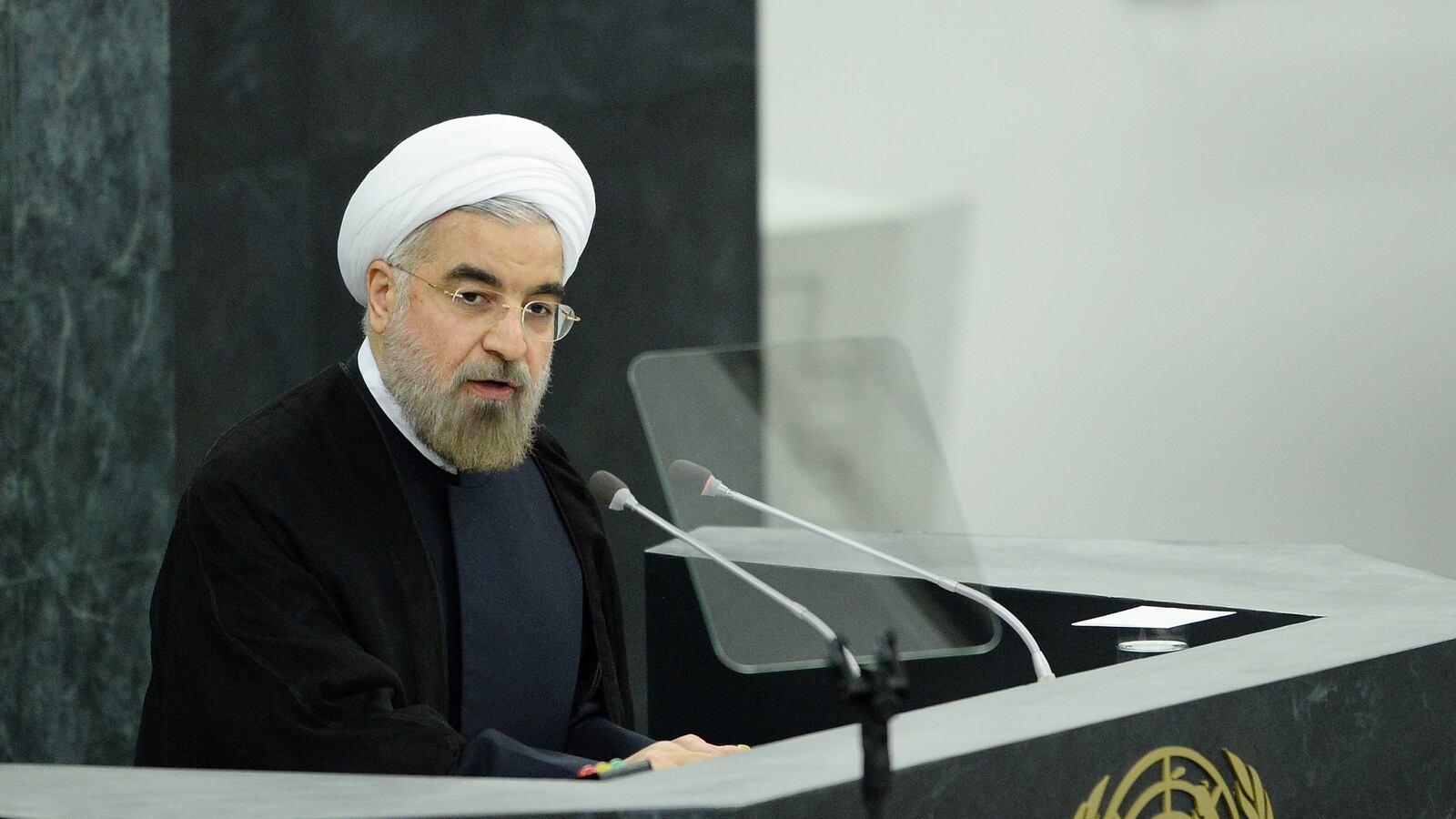In an article published today on Bloomberg, Jeffrey Goldberg reports U.S. Secretary of Defense Chuck Hagel's view that sanctions and Israeli pressure have combined to bring Iran to the negotiating table on the nuclear issue. Goldberg also records Hagel's assertion that sanctions “have done tremendous economic damage,” as well as his belief that Israeli Prime Minister Benjamin Netanyahu isn't “intentionally trying to derail negotiations.” Absent from this conversation is any discussion of how the talks are actually going; of paramount importance, apparently, is the role that economic violence and Israeli belligerence have played in bringing them about. Hagel discharges the piece's brief discussion of the Iranians' willingness to sit down with a brief aside: “Whether the Iranians will carry forth on that, we'll see.”
Meanwhile, Iran's semi-official Fars News Agency quotes President Hassan Rouhani as saying that “The government is not optimistic about the Westerners and the current negotiations,” only a day after Ayatollah Ali Khameini denounced the U.S. as a “smiling enemy.” What does it mean for a figure such as Hagel to praise the talks while his opposite numbers are busy expressing their skepticism?

Avner Inbar and Assaf Sharon have written in these pages about “negotiation fetishism”—an attachment to means and a detachment from ends seen most prominently in Israeli-Palestinian peace negotiations. It's a phenomenon present in the Iranian case as well, one visible in the way Hagel and other policymakers pat themselves on the back and laud U.S. allies for their work in encouraging Iran to, as Goldberg writes, “take negotiations seriously.”When talks resume on November 7th, they will be continue to be carried out under the devastating impact of economic sanctions, the ongoing campaign of assassination against Iranian nuclear scientists, and the constant threat of military action by Israel and the United States. And, as I've written before, Western negotiators have historically demanded major concessions from the Iranians as a prior condition, instead of a concomitant one. A successful end to the current talks, in the eyes of the West, would represent not so much compromise as capitulation.If Western powers come to an accord of some kind with Iranian negotiators, they will have done so with a regime that continues to facilitate mass murder and crimes against humanity in Syria. They will also have affixed the label of “negotiation” to a decades-long process that better resembles a long chain of threats and ultimatums. This may well be necessary; this may well be the way negotiations are carried out in a world rife with massive power imbalances. If that's true, then the future of the word “negotiation” is a dim one: negotiation fetishism will be the eternal norm, and actual compromise a distant memory.





